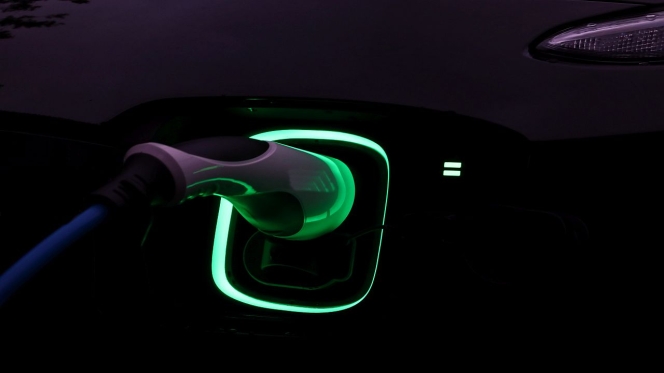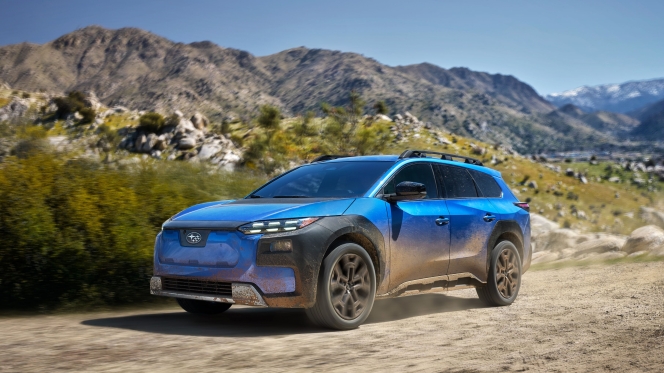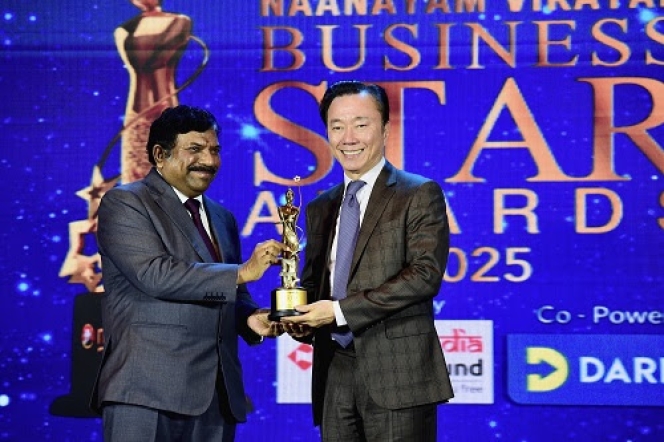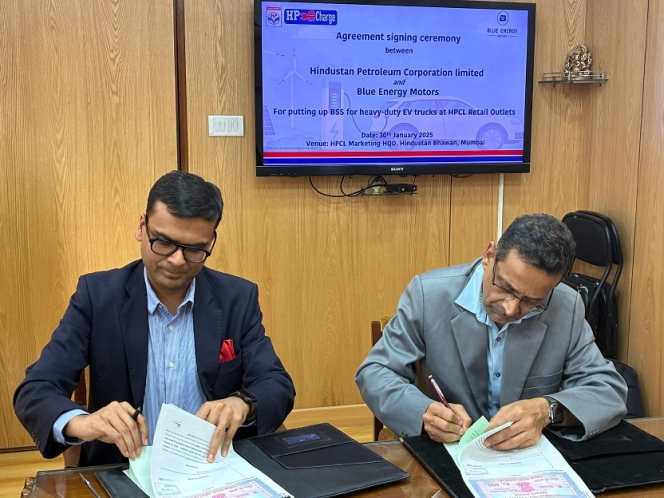
An interesting picture is emerging in India as the EV scene heats up. The big players like Bajaj Auto, TVS Motor Company and Hero MotoCorp and Honda Motorcycles & Scooters India have shed any reservation they would have had about India’s EV market to mark their presence. The movement of these big wigs in the 2-wheeler space is taking place amid a certain clout created by new entrants at the organised end of the EV market like Ather Energy and Ola Electric as well as at the unorganised end of the EV market by entrants like E-Ashwa, ADMS e-bikes, Miracle 5, etc.
What is turning the EV scene in India more interesting is how the small EV players that could be described as those belonging to the unorganised part, are organising themselves to take on the big wigs. A recent development in Maharashtra where the transport authorities seized and fined low-speed two-wheelers that could exceed the stipulated maximum speed of 25 kmph and possibly possessed batteries and motors that exceeded the capacity put down in the rules has led to the smaller EV players to organise themselves as an association that would help them deal with any such eventualities in the future. The treatment meted out to them during the event made them think of a strategy that would effectively make them portray themselves as bigger and stronger. Make them possess the ability to represent themselves better and to lobby effectively if the needs arises.
A similar development is taking place in the three-wheeler category as well. Starting of as small enterprises, electric three-wheeler manufacturers from across the country are beginning to organise themselves as they find that the bigger and better organised players like Piaggio and Ampere are beginning to corner a share of the electric three-wheeler market in the passenger as well as the cargo carrier level.
Moving up the value chain and taking to work closely with Indian suppliers, the smaller three-wheeler manufacturers are investing in better R&D, seeking help from specialised associates at the testing and components supply end to ensure that their vehicles meet the regulatory demand as well as the market expectations.
Smaller electric three-wheeler manufacturers are also working closely with financiers to drive sales while keeping an eye on the regulatory changes and announcement of incentives by states as they announce EV policies in line with the one that the Union Government has drawn. Drawing attention to the EV policy announced by the State of Haryana, Suman Mishra, CEO, Mahindra Electric Mobility, said that her ompany welcomes the move. Terming it as ground breaking, she averred, “What is encouraging is that there is a comprehensive EV policy backing this move. Slashing emissions from the road transport sector forms a pivotal part of India's efforts to de-carbonise its economy and a well-articulated, incentivised EV policy is crucial to creating a conducive environment for the adoption of EVs.”
As the bigger players like Mahindra and Piaggio continue to invest in network expansion, technology upgradation and development of products that are more efficient, the smaller players are taking to collaborations. They are working closely with components suppliers – many of whom are common to the bigger players – to ensure reliance on technology and to enhance their ability to sell reliable EVs. An emerging EV supply chain is almost ‘God-sent’ to the smaller Indian EV manufacturers. Also, the emergence of unique solutions providers like those that are supplying battery pack casing to facilitate easy swapping or charging of the battery or those that are making available test and certification facilities that would otherwise need high investments.
Opinions and feedbacks have been called for by an agency under the aegis of Niti Aayog to prepare a draft for battery swapping policy even as the BIS standard has been made mandatory for EV batteries. There is however a need to reconsider the battery dimension regulation as far as the terminals are concerned, it seems. An industry source mentioned that a new concept of sunken terminals which are safe and efficient rather than the lead-acid battery-like terminals said to be under consideration with appropriate protection show go a long way in revolutioning the use of lithium-ion batteries, he informed.
The battery swapping policy draft is expected to be made public by the end of July 2022 and a policy expected to be announced soon after. At the passenger vehicle level, it is the big wigs like MG Motors and Tata Motors who have been calling the shots. New entrants like BYD are also planting their feet in the market that is growing at a fair pace. As the charging infrastructure grows amid high fossil fuel prices, electric passenger vehicles are growing in the face of attractive incentives, a growing drive range and increase vehicle performance.
At the CV level too, it is a combination of established players like Tata Motors and new entrants like Olectra-BYD and JBM that have been calling the shots. The EV proliferation is at the bus-end of the market. The buyers are mostly city and state transport organisations. The act of purchasing electric buses is also helped by government initiatives like FAME II, which is claimed to be public transport oriented, are helping their proliferation. Given the complex nature of contracts for the supply of electric buses to government and semi-government organisations, it is the organised players with a deep understanding of the market that are at the forefront. What is surprising is how the new entrants like JBM and Olectra-BYD have succeeded in getting a strong hold. Their e-buses too are found along side the e-buses supplied by Tata Motors and Ashok Leyland in most cities in India.
EVs have been big levelling act in India, mentioned an industry source. He drew attention to how the smaller and bigger players are jostling for the same market space almost. A right thrust on infrastructure creation and an emphasis on generation of electricity from greener sources should help EVs to prove to an extent that their cost to the environment is lower than that of the fossil-fuel vehicles, he added. For EVs to be truly environmentally friendly, efforts are being for scientific recycling and processing of vehicles and their components. The small and big players are expected to work together to achieve this goal, making the EV ecosystem in India are ‘true levelling’ ground. Something, which the fossil-fuel intensive auto sector has so far been unsuccessful to create.
Subaru Begins Production Of BEVs At Upgraded Gunma Yajima Plant
- By MT Bureau
- February 04, 2026

Marking a significant step in its electrification strategy, Subaru Corporation has initiated domestic production of Battery Electric Vehicles at its Gunma Yajima Plant. This launch coincides with the finalisation of extensive upgrades to the plant’s production systems, a project commenced in August 2025. Central to these enhancements is a new, flexible assembly line engineered to manufacture the all-new E-Outback alongside traditional petrol and hybrid models within a single, integrated process. This approach leverages Subaru's established expertise in mixed-model production, allowing the company to adapt efficiently to the evolving automotive landscape.
The E-Outback itself represents a key milestone as Subaru's second global BEV, developed through a longstanding alliance with Toyota Motor Corporation. This partnership, celebrating its twentieth anniversary in 2025, has grown to encompass collaborative efforts in development, production and supply chain management. The recent manufacturing advancements are a direct result of deepened cooperation in electrification technologies, combined with continuous refinement of Subaru’s own manufacturing, or monozukuri, capabilities.
Looking forward, Subaru intends to further increase manufacturing flexibility. This focus aims to achieve greater production efficiency and development agility, thereby strengthening the company's ability to respond to market shifts and bolster its overall competitiveness. The Subaru E-Outback is scheduled for introduction in the United Kingdom during Summer 2026, with full specifications to be disclosed nearer the launch date.
- VinFast
- Investor of the Year
- Urban Electric Vehicle of the Year
- VinFast VF 7
- Motor Vikatan Awards 2026
VinFast Wins Dual Honours In India For Investment And Electric SUV
- By MT Bureau
- January 31, 2026

VinFast’s strategic progress in India has been further validated through recent accolades from the influential Vikatan Group media network. The company was distinguished with two significant awards: one recognising its substantial investment commitment, and the other honouring its VF 7 model as the premier urban electric vehicle for 2026. These commendations underscore the brand’s deepening integration into the Indian automotive sector, highlighting both its industrial strategy and its product relevance.
The title of Investor of the Year, conferred by Nanayam Vikatan business magazine, specifically acknowledges VinFast’s landmark commitment to establishing an electric vehicle manufacturing facility in Thoothukudi, Tamil Nadu. This project is noted not only for its scale and strategic clarity but also for its anticipated role in fostering a new industrial corridor, generating employment and bolstering the local supplier network. It aligns with national initiatives like Make in India and reflects confidence in the region’s manufacturing potential.
Concurrently, the VF 7 electric SUV was named Urban Electric Vehicle of the Year at the Motor Vikatan Awards 2026. This recognition from automotive experts underscores the model’s successful adaptation to India’s urban driving conditions, balancing design, performance, safety and comfort. It serves as a testament to VinFast’s product development focus and its localisation strategy aimed at meeting specific market demands.
As a respected media institution in South India with a legacy dating to 1926, the Vikatan Group’s awards carry considerable weight among businesses and consumers. These latest honours add to a growing list of VinFast’s achievements in the market, illustrating the convergence of its investment, manufacturing, and product efforts. Within a short timeframe, the company has employed a long-term strategy encompassing manufacturing, retail, charging infrastructure and after-sales services. Through this comprehensive approach and a focus on sustainable innovation, VinFast is steadily building its brand presence while contributing to India’s transition towards green mobility.
Pham Sanh Chau, CEO, VinFast Asia, said, “Being recognised in two important award categories demonstrates how VinFast is steadily building its position in India, not only through long term investment commitments but also through products developed to match local conditions and user needs. This recognition provides further momentum for us to accelerate implementation, expand the electric vehicle ecosystem, and maintain a long-term partnership with the Indian market.”
B Srinivasan, CEO, Vikatan Group, said, “VinFast India represents the new-age investor – bold in vision, swift in execution and deeply aligned with India’s growth story. By unravelling the true potential of the port city of Thoothukudi, VinFast India has helped create a conducive industrial ecosystem, played a positive role in employment generation and restored the city’s importance on India’s manufacturing map. Their investment is not just capital at work but confidence in India’s future.”
Blue Energy Motors And HPCL Forge Nationwide Pact For Electric Truck Battery Swapping
- By MT Bureau
- January 30, 2026

Blue Energy Motors and Hindustan Petroleum Corporation Limited (HPCL) have entered a strategic partnership to deploy Battery Swapping Stations for electric commercial trucks at select HPCL fuel outlets nationwide. This initiative leverages HPCL’s extensive network of over 24,400 retail locations to create a widespread and convenient energy infrastructure for freight operators. By situating swap stations within established fuelling hubs, the collaboration seeks to make electric mobility a practical and scalable reality for India’s logistics sector.
The core advantage of battery swapping lies in its dramatic reduction of energy replenishment time to under five minutes, minimising vehicle downtime compared to conventional charging. For fleet operators, this efficiency translates into higher vehicle utilisation, improved productivity and more predictable scheduling. Furthermore, a growing and accessible network of swap stations alleviates range anxiety, enabling electric heavy-duty trucks to confidently undertake longer routes and multiple shifts.
As India advances its green transportation goals, this alliance holds significant strategic value. HPCL’s vast retail footprint, which already supports over 5,400 EV charging points under its HP e-Charge brand, offers a ready platform for rapid infrastructure deployment across key freight corridors. Blue Energy Motors, a pioneer in zero-emission freight solutions, brings its expertise in electric commercial vehicles, exemplified by its launch of India’s first electric freight corridor. Together, the companies aim to accelerate electric vehicle adoption by directly addressing the operational needs of commercial fleets, thereby strengthening the long-term development of sustainable freight transport in the country.
- Eicher Trucks and Buses
- VE Commercial Vehicles
- VECV
- India Book of Records
- IBR
- Eicher Pro X
- Vinod Aggarwal
- SS Gill
- Abhishek Chaudhary
Eicher Pro X EV Completes Kashmir To Kanyakumari Journey In 6 Days
- By MT Bureau
- January 28, 2026

Eicher Trucks and Buses, part of VE Commercial Vehicles (VECV), has completed a journey from Kashmir to Kanyakumari using its Eicher Pro X EV.
The record verified by the India Book of Records (IBR), saw the electric vehicle cover over 4,000 kilometres in 6 days under loaded conditions. The run commenced in Srinagar on 20 January 2026 and concluded in Kanyakumari on 26 January 2026, traversing the Himalayas, plains and the Deccan Plateau.
Throughout the expedition, the vehicle utilised public chargers located via the MyEicher App. An adjudicator from the India Book of Records accompanied the truck to monitor route compliance, load, distance and charging stops. The mission served as a demonstration of electric vehicle endurance across diverse altitudes and climates to validate the technology for logistics corridors.
The journey was intended to show that electric commercial vehicles can operate beyond short-haul deliveries. By maintaining performance across hilly and coastal routes, the Pro X EV aimed to establish total cost of ownership (TCO) benefits and maintenance predictability for fleet operators. The successful completion of the route suggests that current charging infrastructure can support long-haul electric freight movement.
Vinod Aggarwal, MD & CEO, VE Commercial Vehicles, said, “For more than four decades, Eicher trucks and Buses have earned customer trust through leadership in fuel efficiency and application-specific engineering. The record-setting performance of the Eicher Pro X reinforces our unwavering focus on application excellence, reliability, and performance, anchored in robust product development and manufacturing capabilities, and enabled by a customer-centric, pan-India commercial and dealer network. I commend the entire Eicher team for achieving these well-deserved records”.
SS Gill, Chief Commercial Officer, VE Commercial Vehicles, said, “By covering the K2K route with a loaded Pro X EV, Eicher Trucks & Buses has proven that electric mobility is no longer restricted to short-haul, ‘last-mile’ deliveries. We are not just setting records, but through the strength of our service network and extensive dealer set-up, we are demonstrating that our EV technology is commercially viable, reliable, and has the range to serve as the backbone of India’s green logistics corridors”.
Abhishek Chaudhary, SVP – SCV Sales & Marketing, VE Commercial Vehicles, said, “The Eicher Pro X EV was put to the ultimate test – covering over 4000 kilometres across diverse climates and challenging altitudes. With this recognition from the India Book of Records we’ve moved beyond our own stringent testing benchmarks to real-world validation - Demonstrating that Eicher Pro X EV is a dependable partner for logistics movement across varied operations in India”.








Comments (0)
ADD COMMENT